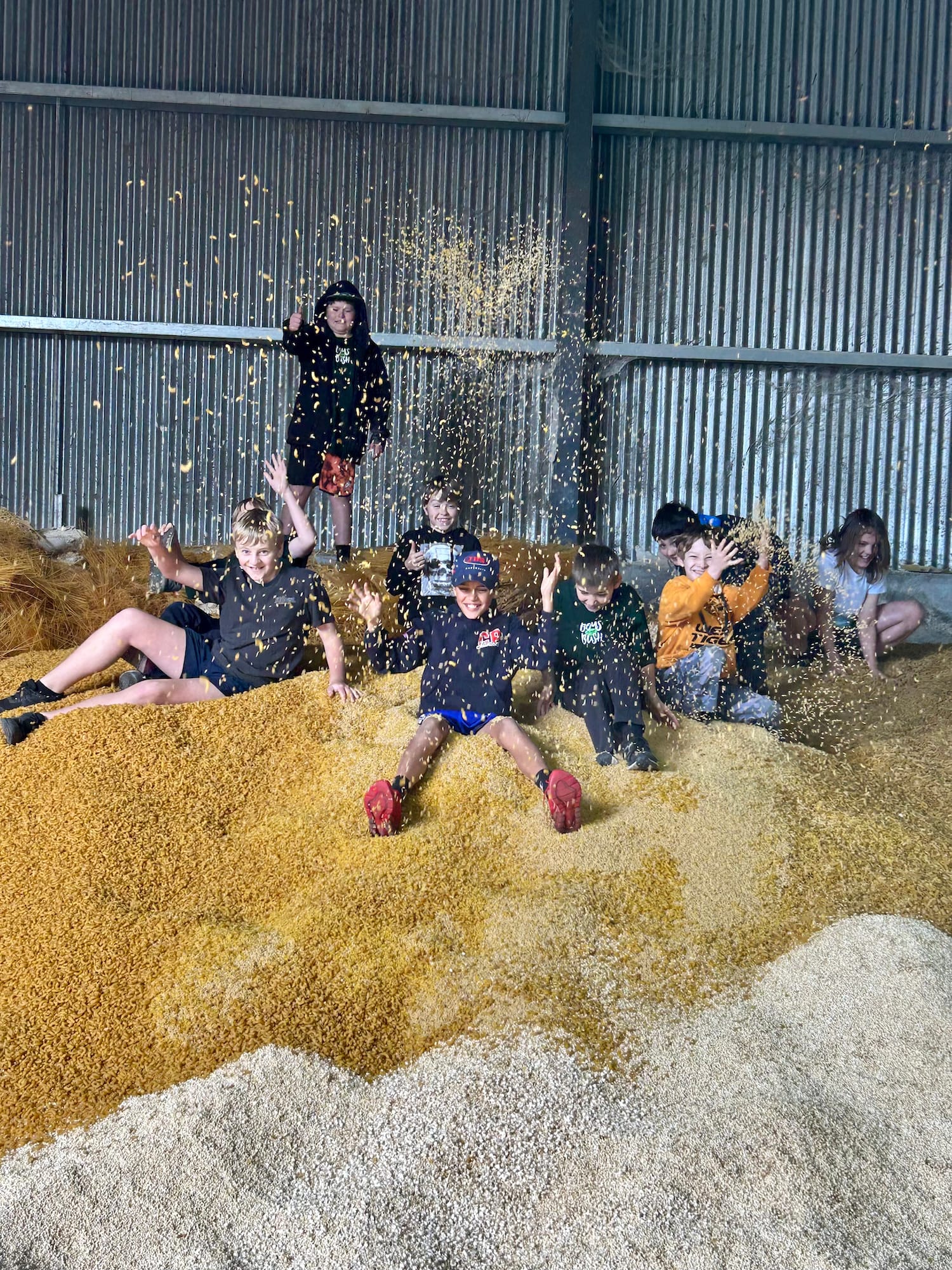
Highlighting the remarkable work of three community projects.
Words Megan Holbeck
Galah is highlighting remarkable community work in rural and regional Australia in a series made possible by our partnership with Westfund, a not-for-profit health fund with a 140-year history in regional Australia.
“It’s easier to build a strong boy than repair a broken man.” This mantra is the core premise of Boys to the Bush (BttB), a charity focusing on early intervention to connect vulnerable boys to their communities.
The organisation started in 2017 in the border town of Albury. Three former school teachers recognised the positive effects of taking disengaged boys into the bush and began running a series of basic bush camps. Ongoing one-on-one mentoring was added, then school programs and out-of-home care.
In the past seven years BttB has spread to 10 hubs across Victoria and New South Wales, helping 7000 boys, about 75 per cent of whom receive ongoing support. Developing ongoing personal relationships between BttB staff and kids is the key to the organisation’s success, says Cassandra Tyack, BttB’s relationships coordinator.
BttB staff are well-connected in their communities – often tradies, teachers and sports coaches – and they build relationships while helping boys develop skills. Some of these seem heartbreakingly basic – teaching kids to brush their teeth, shower regularly, look people in the eye when they speak – while others are bigger: helping to gain P plates or apprenticeships. According to Tyack, it’s not about the big achievements. “It’s generally about a lot of little stories that make a huge difference across an entire community.”
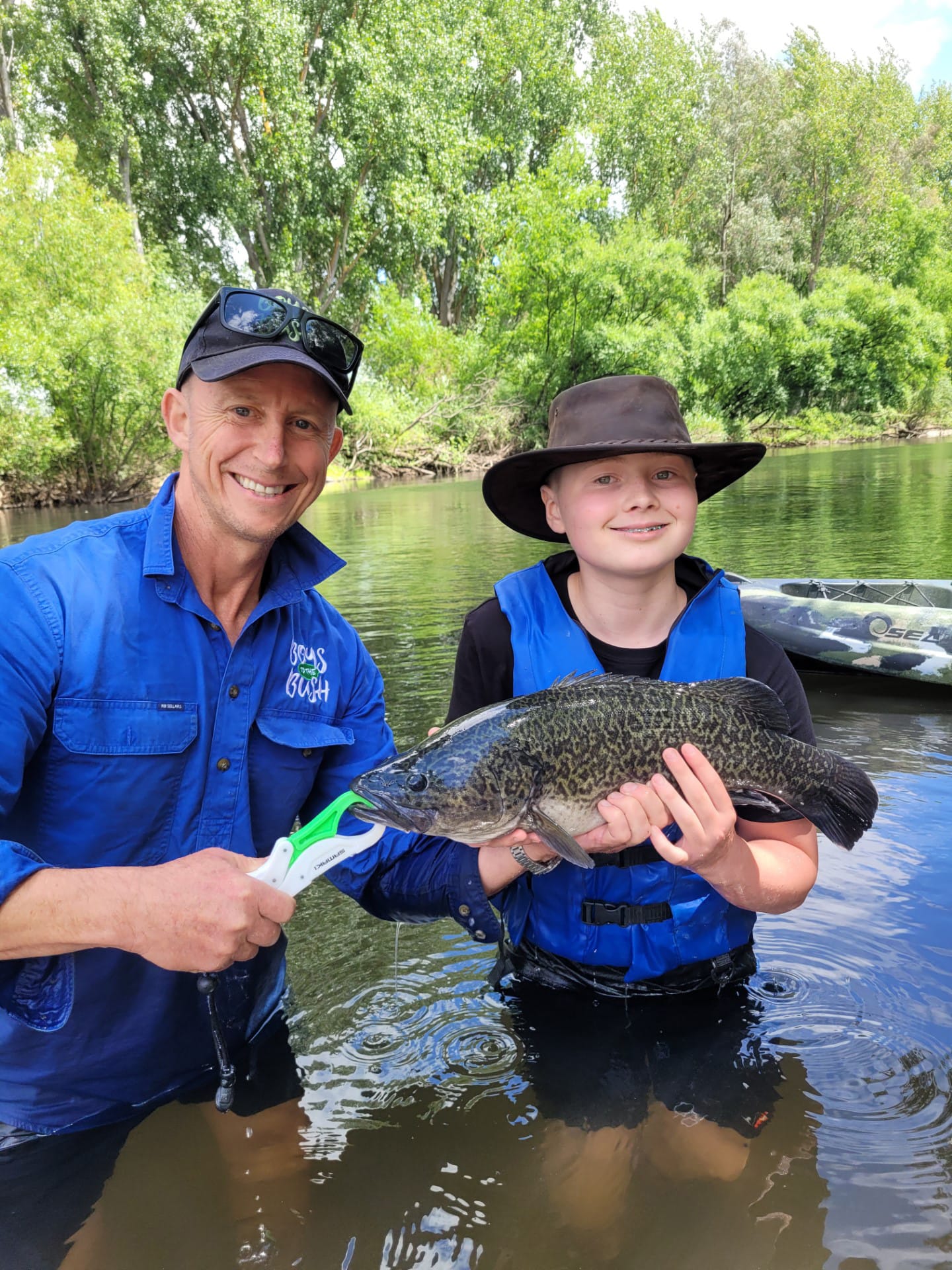

From farming to fishing, Boys to the Bush camps and programs connect boys to their communities.
With help from local volunteers, BttB aims to develop community connections and social skills in ways targeted to each boy’s goals and interests. They might lamb-mark at a farm, learn to make sausages at a local butchery, have a session fixing things at a Men’s Shed. There’s also time for fishing or sitting by a campfire, allowing conversations to open up.
Continuity of relationships and reconnection to community are core, says Tyack. “A lot of the kids we work with aren’t connected to anything” – not to families, school social groups or sporting networks.
The growth is reciprocal: as boys develop a sense of belonging, the community
embraces them in return. From there, Tyack points to the domino effect. “By helping boys in our community, we’re creating better fathers, husbands, uncles, brothers, and that’s supporting women and girls.”
In 2012, Christine Mastello took $20,000 from her bank account and invested her savings and six months of her time to start a community food pantry in her home town of Morriset, in the Lake Macquarie region in New South Wales.
The area had a large number of single parents and a recent change to the Federal Government’s single parenting payment meant that support ended when the youngest eligible child was eight, rather than 16. This affected scores of families. Mastello knew the town needed the project. And she knew that she needed it just as much. The mother of three was still reeling from a horror year in 2010, when her youngest son was diagnosed with severe autism, her 15-year-old had a stroke and her 17-year-old was beaten up by a gang.
She had always worked hard – first as a palliative-care nurse, then a social worker – but, just as she found she couldn’t return to full-time work, she realised she desperately needed to keep working. “We all share the planet – if we don’t look after each other while we’re here, then what are we here for?” says Mastello.
Twelve years later, that fledging idea has grown into Southlakes Incorporated, a national charity that has helped more than 1.5 million people, providing food, clothes, haircuts and more. There are weekly community food pantries in two local towns, while remote Gulargambone in the state’s central west gets one monthly. These pantries sell groceries for about 40 per cent less than standard supermarkets. Every week a free dinner is served to 300 people, while 10 local schools receive food bags for distribution.
Operating with three vans, 120 volunteers and one paid bookkeeper out of a hub in
nearby Cooranbong, Southlakes provides everything from food to toiletries, new sheets to clothes. The goods are donated to Southlakes and distributed to those in need, either directly or through a network of 80 partner charities. “If you can imagine something in your house, we can supply it,” Mastello says.
Less obvious is the harder, ongoing work of fostering respect and compassion, establishing connections between services and people, and within communities.
A traumatic upbringing honed Mastello’s sense of empathy; she knows what it’s like to feel wholly unimportant. So she watches, thinks and learns, working out ways to help others.
One day, three little boys visiting the food pantry were talking excitedly about getting haircuts for their first school photos. Their mother pulled Mastello aside and explained her dilemma: she couldn’t afford haircuts, but she didn’t want her kids to ever look back at school photos and see they were poor. So Mastello arranged haircuts for the boys and paid for the photos, then asked nearby community centres if clients had ever mentioned needing haircuts.
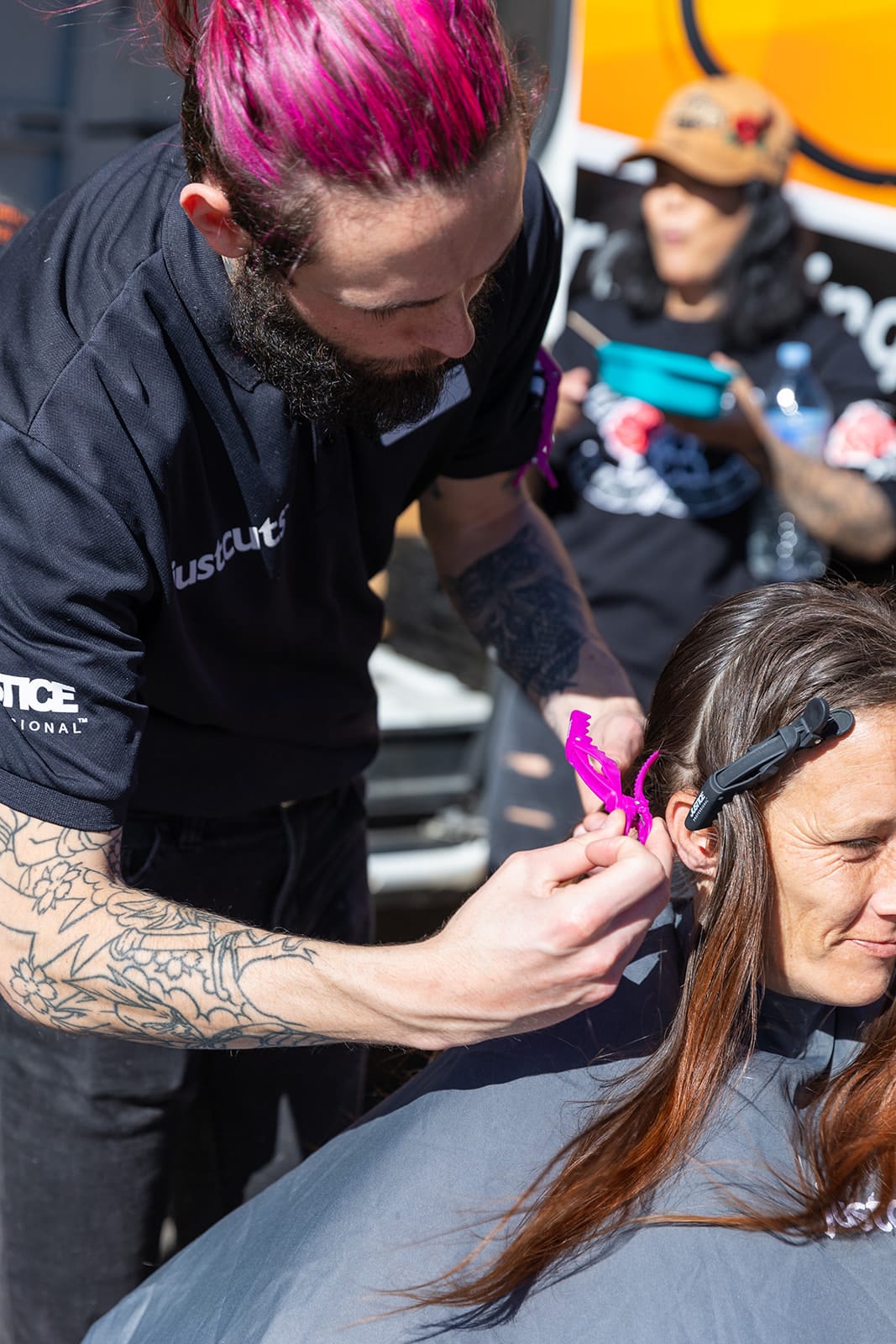
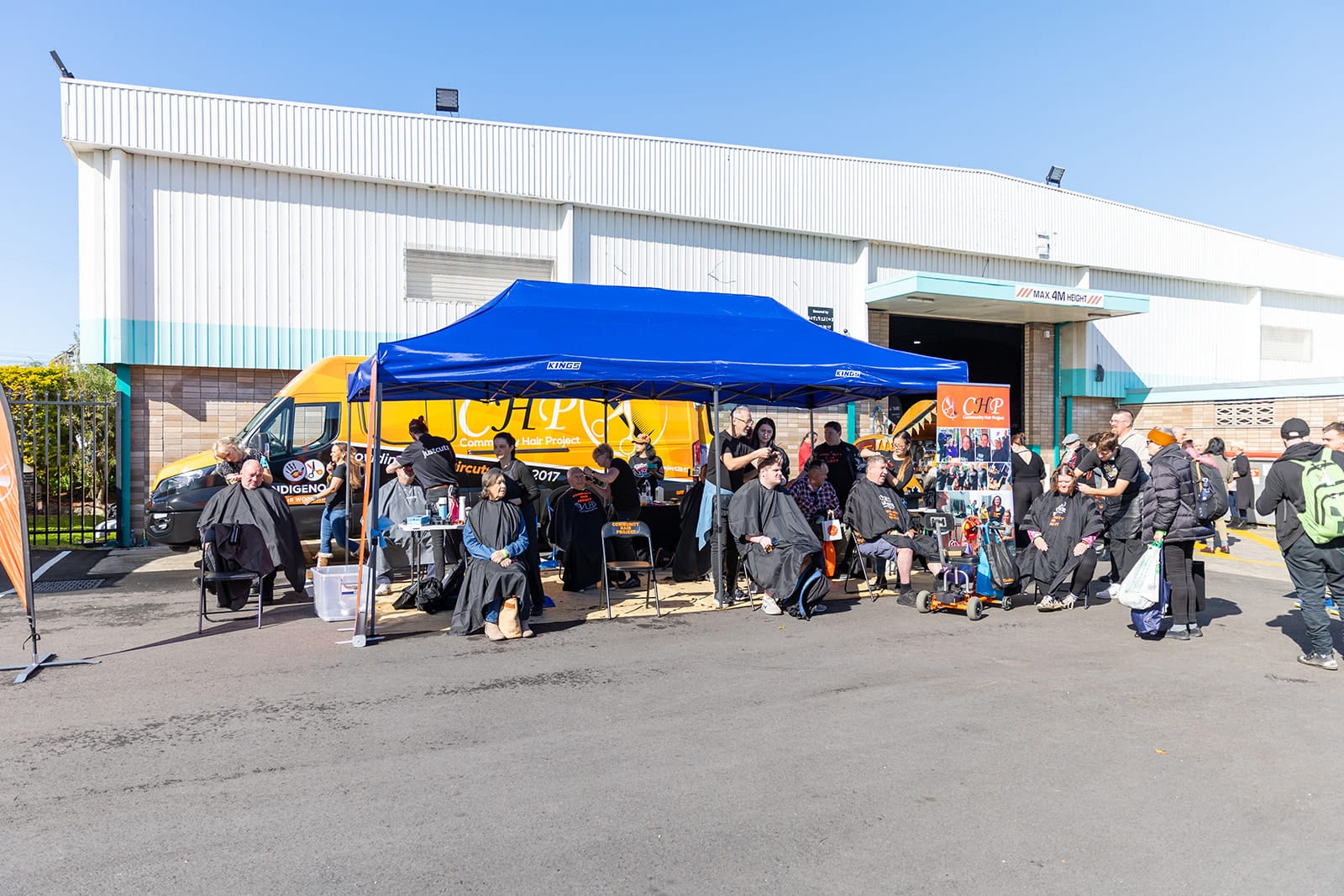
Free cuts; a few of the 300 hairdressers who give free cuts in Southlake Inc’s community hair project.
The resulting Community Hair Project has provided 99,000 free haircuts since 2017, with a team of 300 hairdressers and barbers operating monthly in 150 sites around Australia. It also inspired the Indigenous Hair Project, in which hairdressers spend five days in remote communities, training locals in basic skills and supplying hairdressing kits. They’ve even worked out a feasible way to deliver a certificate III qualification, allowing Indigenous people to open their own salons.
Mastello’s favourite time of year is coming up. At Christmas, Southlakes throws a free community party, providing toys for 2000 children and hampers for 1000 families.
Much of the organisation’s work, though, is listening, recognising problems and gaps, then finding partners to help deliver solutions. As Mastello says, “If there’s a need and the need’s not being filled, then we will turn over every damn rock and speak to every politician and make it happen.”
Driving to work one morning, Aaron Schultz knew he was in trouble. He had the urge to run his car off the road and into a tree – at least then he could go to hospital and have a rest.
After starting his career in mental health, he managed big construction, mining and manufacturing job sites around regional Australia. After 15 years he was burnt out, had terrible self-esteem. “But I wasn’t proactive, not curious about how to look after myself, how to change or listen to the signs of fatigue and stress,” he recalls.
After that fateful morning he began to work on himself, first addressing his physical health, then slowly improving his emotional health. And in 2019, 10 years after his own life hit the skids, he started the Outback Mind Foundation.
It set out to tackle a problem that Schultz was familiar with: the poor emotional literacy of Australian men. It’s something that plays out in obvious ways: high suicide rates (an average of seven men die a day nationally), domestic violence, reliance on alcohol and drugs. According to Schultz, these are signs of men being disconnected from themselves, unable to recognise or manage their feelings. It’s particularly obvious, he says, in regional areas with large, predominantly male workforces.
In five years, Schultz has developed Outback Mind Foundation into a charity providing men with the guidance, understanding and communication tools for better emotional literacy. There are 15 “men’s circles” based in diverse venues in Queensland and beyond, from a yoga studio in Airlie Beach to a community centre in Horsham, Victoria.
Based in Queensland’s Gladstone region, Outback Mind provides training for volunteer facilitators, a diverse mob including GPs and pilots, plumbers and ambulance officers. To complement the men’s circles, the charity has developed workshops on mental health and domestic-violence prevention for workplaces across Australia, aiming to provide “prehabilitation rather than rehabilitation”.
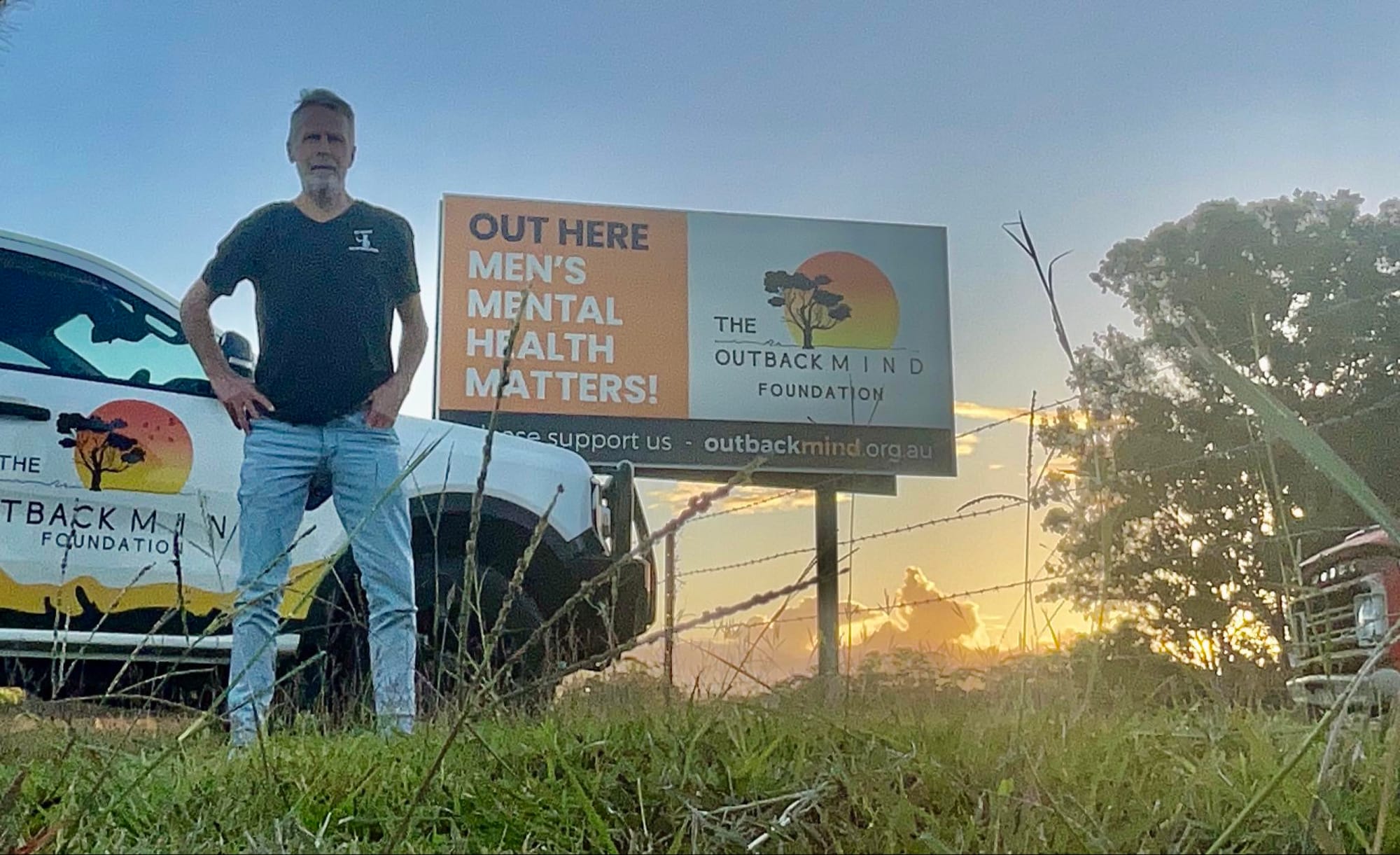
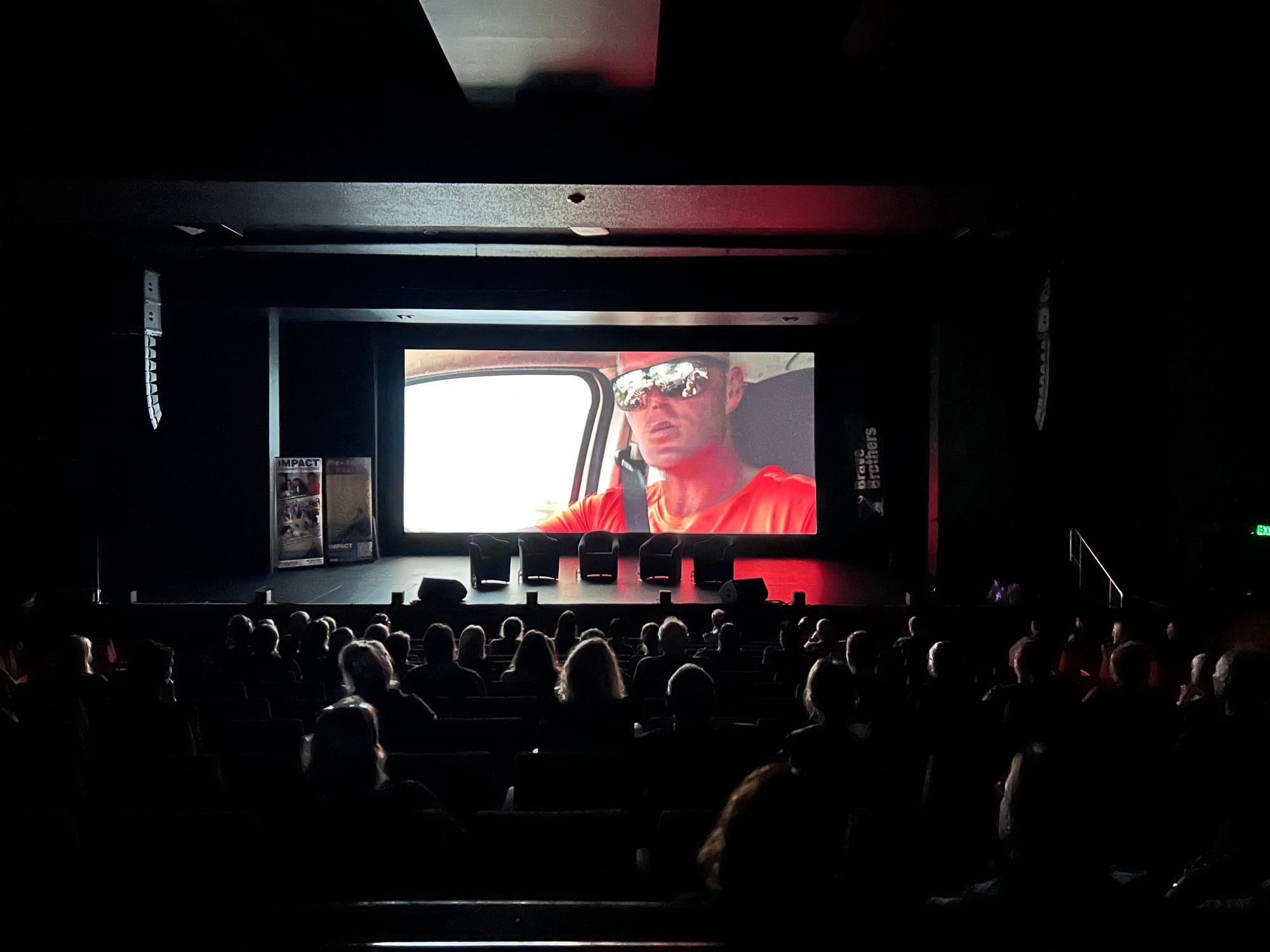
Outback Mind Foundation founder Aaron Schultz takes the men’s mental health program on the road; screening the doco Healing Men’s Minds.
Outback Mind has recently taken its message on the road. The Outback Regional Men’s Revival Tour visited 35 regional communities across New South Wales and Queensland, spreading insight and knowledge about gaining and maintaining mental health. A key resource is a conversation-provoking documentary called Healing Men’s Minds.
“Getting men talking is critical,” says Schultz. He hopes to expand men’s circles across regional Australia: 10 more this year, and 100 by the end of 2026. The results keep him going. “There’s a dozen families I know in our area that have still got a father because of the work we’re doing.”
To learn more about Westfund, including the Westfund Community Grants Program, see westfund.com.au